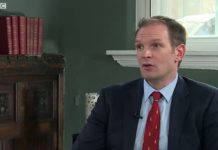Strike action across England this week will significantly disrupt almost all routine care in the NHS, England’s top doctor has warned today.
Professor Sir Stephen Powis said that industrial action by junior doctors, starting at 7am on Wednesday, meant thousands of routine procedures had already been postponed by trusts, as the NHS prioritises emergency and life-saving care.
The 72-hour walkout ends at 7am on Saturday. Junior doctors make up around half of all doctors in the NHS; they are qualified doctors who have anywhere up to eight years’ experience working as a hospital doctor, depending on their specialty, or up to three years in general practice.
Previous action by junior doctors in April saw around 27,000 staff off per day due to industrial action and 196,000 hospital appointments disrupted.
The NHS in many parts of the country has faced high demand for urgent care services. The NHS is advising people to follow guidance in the warm weather, including keeping out of the sun at the hottest time of the day, drinking plenty of fluids and applying sunscreen.
Older people are particularly at risk in warm weather and are advised to keep living spaces cool by closing windows and drawing curtains during the day and opening them at night when the temperature outside has gone down. It’s also important to check the temperature of rooms where people at higher risk live and sleep.
To make sure safe care continues to be available for those in life-threatening situations, NHS staff will be asked to prioritise emergency and urgent care over some routine appointments and procedures.
Appointments and operations will only be cancelled where unavoidable and patients should still come forward unless they are contacted. Where appointments are cancelled, patients will be offered an alternative date as soon as possible.
The NHS has said that people who need care must still access the care they need – only using 999 and A&E in life-threatening emergencies and using NHS 111 online and other services for non-urgent health needs.
Pharmacies and GPs are largely unaffected by the strikes so patients can still get appointments and health advice.
Professor Sir Stephen Powis, National Medical Director for the NHS in England, said: “The NHS has been preparing extensively for this next set of strikes, but we know that – with the sheer number of appointments that need to be rescheduled – it will have an enormous impact on routine care for patients and on the waiting list, as procedures can take time to rearrange with multiple teams involved.
“As we enter the seventh month of industrial action across the NHS, and as this action becomes more frequent, we are now seeing an extraordinary cumulative impact on our services and crucially on our staff, who continue to go above and beyond to maintain safe patient services during this challenging period.
“Emergency, urgent and critical care will be prioritised this week, but some patients will unfortunately have had their appointments postponed – if you haven’t been contacted to reschedule, please do continue to attend your planned appointment.
“This week, as ever, use 999 and A&E for life-threatening emergencies and using NHS 111 online for all other health conditions.”







